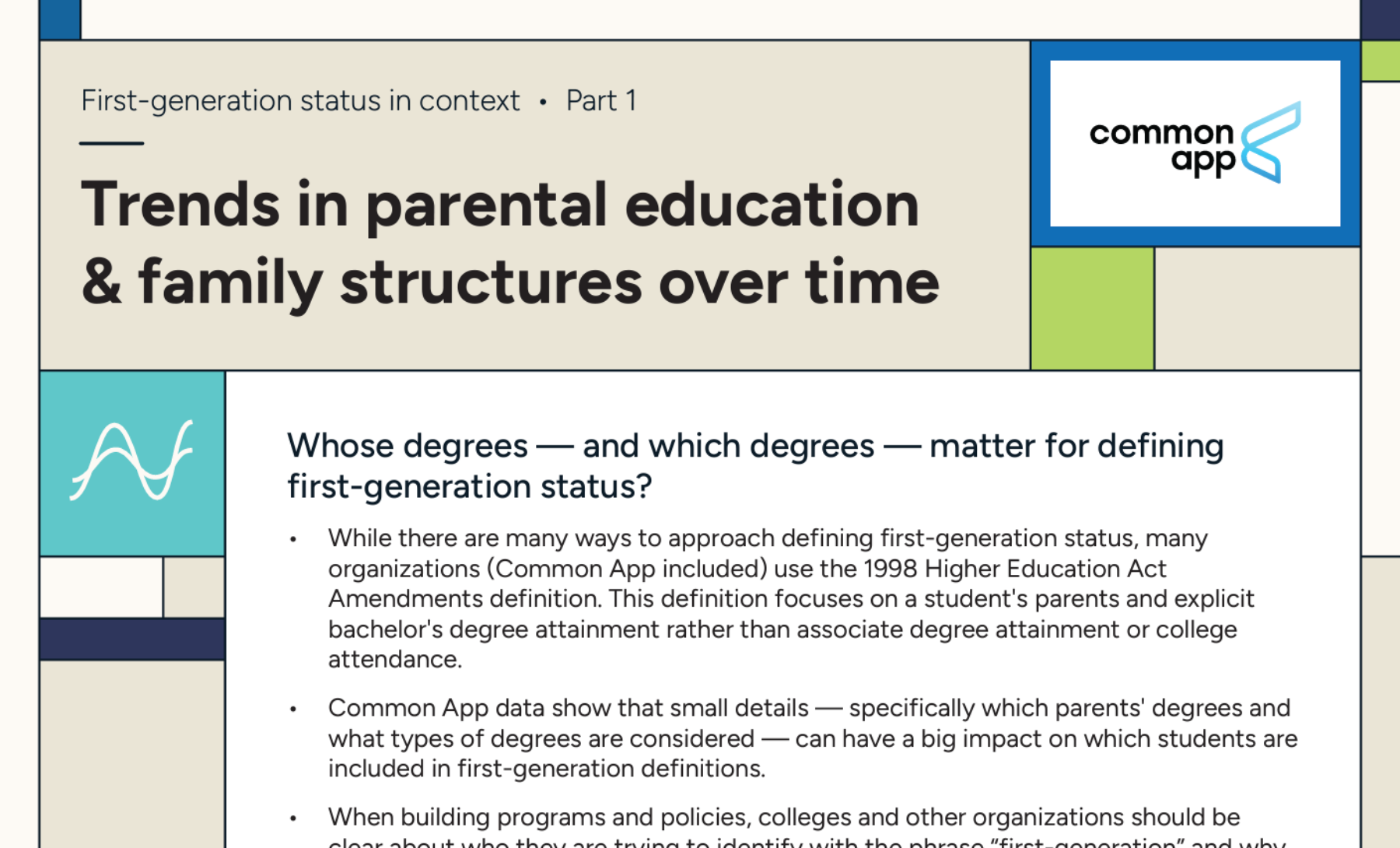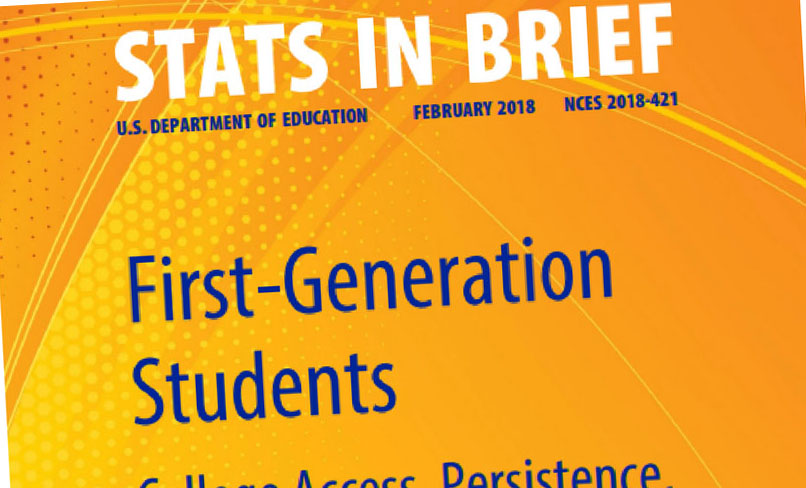In recent decades, an increasing proportion of the U.S. population has enrolled in college and earned a bachelor’s degree (Snyder, de Brey, and Dillow 2016). The percentage of U.S. adults age 25 and over who held a bachelor’s degree increased from 21 percent in 1990 to 33 percent in 2015 (Snyder, de Brey, and Dillow 2016). Accompanying this trend is a shrinking share of children whose parents have not attended college; Cahalan et al. (2006), studying two cohorts of high school sophomores, noted that in 1980 some 77 percent of high school sophomores’ parents had not enrolled in postsecondary education; by 2002, the percentage had declined to 62 percent. Explore the report to learn more.
Explorereports
First-Generation Students: College Access, Persistence, and Postbachelor's Outcomes
U.S. Department of Education / National Center for Educational Statistics
Related Stories

Access and Persistence
First-generation status in context, part one: Trends in parental education and family structures over time
.jpeg)
Academic & Co-curricular Experiences
